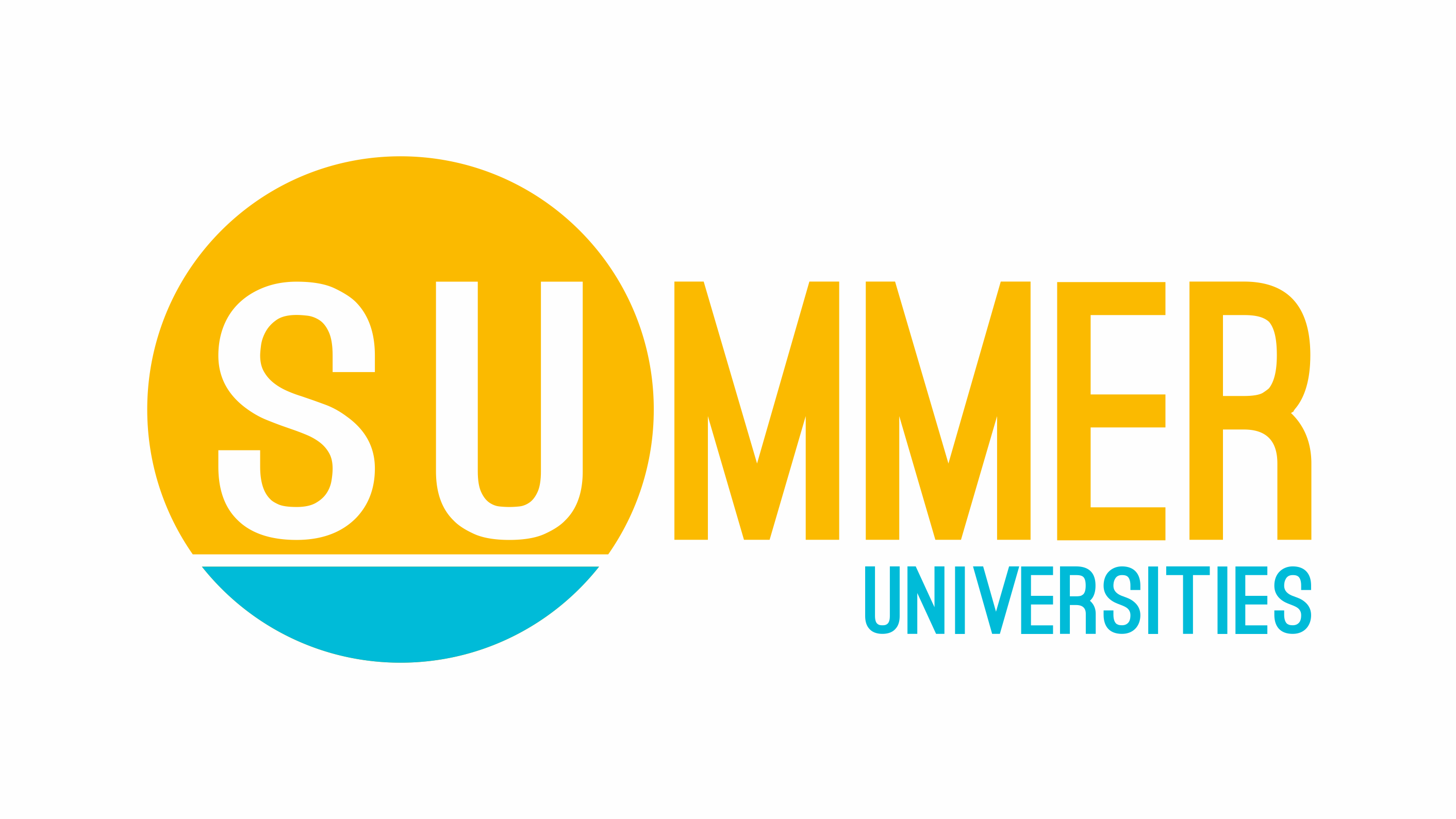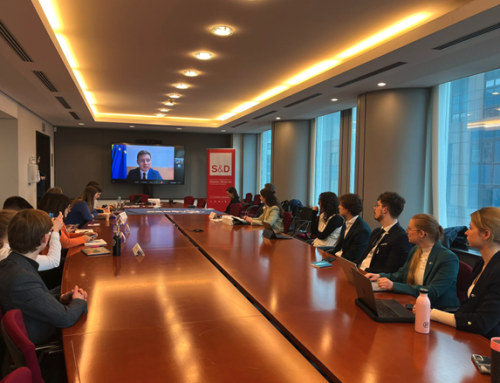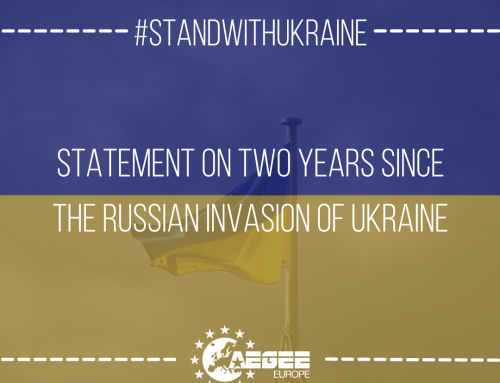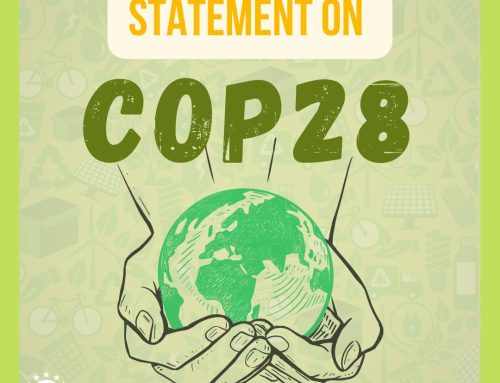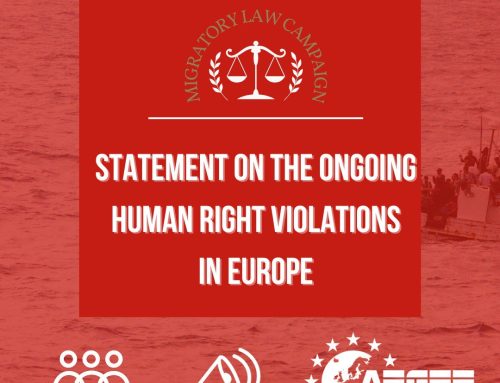01 | Introduction
AEGEE-Europe / European Students’ Forum is a non-governmental, politically independent, and non-profit student organization which has around 13000 members from more than 200 cities in 40 countries all over Europe.[1] The mission of AEGEE is creation of borderless Europe, which could be implemented by giving the young people opportunities of cultural exchange, integration and travelling.[2] Visiting different countries is the best way to broaden the mind and share cultural diversity. However, quite a lot of destinations are still rather problematic for young people to reach, mostly due to bureaucratic (visas) and financial (high ticket prices) barriers. Moreover, many opportunities are missed due to lack of information: Most young people have only heard about Erasmus student exchange, although there are a lot of other possibilities (for instance, the Youth Exchange Training Course, EVS, the EU Aid volunteers, etc.). Since the foundation of AEGEE many steps towards broader availability of travel have been taken, especially in the Schengen Area. However, there are still many obstacles to mobility in Europe: As 25% of the AEGEE network is outside the European Union, visa problems can sometimes be substantial.
In the following paper the importance of youth mobility will be explained in terms of the biggest and most significant project of the organization: the Summer University. While long-term mobility programs supported by universities (like Erasmus) are broadly recognized, there are still short-term mobility programs supported by international NGOs, which also contribute a lot to creating European citizens. First of all, in section 3 the essence of the Summer University project will be described, as well as its history, development, purpose and diversity. Further, in section 4 the methodology of the research will be explained. The research presents the results of a questionnaire conducted among members of AEGEE on the impact of participation in and/or organization of a the Summer University on their life and personality, and also the statistic and description of various mobility barriers faced by members of the organization when trying to reach the place where the SU will take place..
Based on the results and statistics of the survey and the position of AEGEE, illustrated in section 5, recommendations about possible measures concerning visa procedure and possible international support of NGOs (as stakeholders in organizing mobility projects and events) from the institutions and local governments will be given in section 6.
02 | Context
The issue of youth mobility programs is as urgent as ever, especially taking into account not only the question of individual development but also the social situation in Europe, decrease of the level of European identity and solidarity, and raising Euroscepticism.
To the question concerning the Erasmus program (which “enables European students to spend part of their studies at another higher education institution or with an organisation in Europe”), a large majority of Europeans express a positive opinion about it (86% ‘positive’); just 5% have a negative opinion, and 9% are unable to answer.[3]
The essence of the Erasmus program – as well as its main benefit – is its contribution to creating European citizens in the sense for which the whole European policy strives: democratic, tolerant, open-minded, with a wide range of interests. The importance of this program cannot be understated (especially in view of the rise of populism, nationalism and Euroscepticism), but we must keep in mind that Erasmus is not the only mobility program which can help to achieve this aim. There are many other long-term and short-term mobility programs with various contents but with a common result. One of these programs, coordinated by AEGEE-Europe, is the Summer University project (detailed in section 3).
One undeniable advantage of the Summer University project over the Erasmus program is that it is open to absolutely all young Europeans regardless of background or whether they are studying at university (only students can take part in the Erasmus program). Besides, not all European countries are involved in the Erasmus program so far, whereas the Summer University project is accessible for citizens of any European country (both EU and non-EU).
03 | The Summer University Project
AEGEE provides young people with a lot of opportunities for travelling and self-development by organising various international projects and events. The biggest and most significant project, which is described in detail below, is Summer University.
The Summer University project was established in 1988 and this is one of the largest and most successful youth exchange independent short-time mobility volunteering project organized by an NGO.[4]
Summer Universities are events which take place during summer for between one and four weeks in most of the cities in which AEGEE is present. Understanding and exploring the multicultural dimension of the European continent, overcoming national and cultural stereotypes, fighting for tolerance and creating open-minded citizens are some of the reasons why 20 to 50 young Europeans from all over Europe come together in each Summer University.[5]
The second part of its name – “University” – is not simply a word, it is very significant, concerning AEGEE’s aim of non-formal education and being realized with workshops, discussions, presentations or even projects provided by either experienced members of AEGEE or by other partner institutions.[6]
The idea of this project belongs to Daisy Kopmels (member of AEGEE-Amsterdam, 1988). First Summer Universities were 10 language courses offered to 320 applicants, taking place in Bellaterra/Barcelona, Madrid, Sevilla, Heidelberg, Kiel, Milano, Amsterdam, Orléans, Paris and Toulouse. The languages which were studied at these courses were Catalan, Spanish, German, Italian, Dutch and French.[7]
The following timeline illustrates the development of the project:
- 1989: The number of courses reaches 16 and, for the first time, it was possible to study Greek and Computer Sciences
- 1991: The first SUs in Eastern Europe take place
- 1992 : The first 5 TSUs (Travelling Summer Universities) are organized
- 1994: SU Types: Summer University, Summer University +, Travelling SU, Summer Camp
- 1995: The fee is now 100 ECU[8], raised many more times after.
- 1996: Summer Events are introduced
- 1999: Electronic applications replace paper forms
- 2000: Webpage: (www.aegee.org/su). Fee is now paid in Euro
- 2003: Applications now via website
- 2004: The SU on its peak: 96 SUs! The first SUPS (Summer University Project School – a training for future Summer University organisers) took place[9]
The Summer University project suggests a big variety of themes, which can help its participants in developing new competences, gaining useful skills and knowledge. For example, there are such topics as History and Local culture, Civic Education, Sports, Language, Art and Creativity, etc. Apart from the cultural exchange these Summer Universities also include sessions and trainings on different topics, provided in an interactive way and based on the principles of the non-formal education.
Summer Universities are currently divided into Summer Course, Summer Course Plus and Travelling Summer University.
- Every Summer Course is characterised by:
- A duration of between 11 and 28 nights; exceptions for a duration of minimum 8 nights can be made by the SUCT (Summer University Coordination Team) for organising Locals which have not been granted this exception the previous year;
- At least 14 hours of tuition per week;
- A minimum number of 15 participants.
The course should be about main subject/roof topic, classes about related topics are possible.[10]
A Summer Course Plus is an intensive course on any subject. These courses are officially recognised and supported by the university, the educational institution in which they take place or AEGEE-Academy (a training association within AEGEE-Europe, formed by members of Locals interested in trainings) and lessons are taught by professional teachers or trainers approved by AEGEE-Academy. A proof of the teachers’ or trainers’ qualification and experience is to be provided to the SUCT (Summer University Coordination Team, responsible for the good functioning and for the development of the project).
- Every Summer Course Plus is characterised by:
- A duration between 11 and 28 nights;
- At least 20 hours of tuition per week on average;
- A minimum of 15 participants;
- A minimum of 4 cities visited.[11]
- A Travelling Summer University is a cultural travel through Europe. Every Travelling Summer University is characterised by:
- A duration between 14 and 28 nights;
- At least 20 hours of tuition per week on average;
- A minimum of 15 participants.[12]
According to CIA (Corpus Iuridium AEGEEnse, General Rules of AEGEE-Europe, version 27, July 2016) the Summer University participation fees are set to a maximum of 14.00 Euros per person and per night, in which at least two meals per day (of which at least one is warm), all lodging, transportation, tuition and activities are included. Fees set by the preceding SUCT can be increased by a maximum percentage based on Eurostat Euro Area annual inflation statistics of the calendar year[13]. Locals are encouraged to set the fee as low as possible in order to encourage and foster travelling according to the aims of the SU project.
In summary, the Summer University project is AEGEE’s longest-lived and most successful project, which has evolved and taken many shapes over its history and throughout its different instances , even though the basic concept has remained the same: summer events organised by and for young people from all over Europe, with both educational content, cultural exchange and with room for fun and leisure. In the past year 2016 the total number of SU applicants was 2767, the number of Summer Universities was 75, the number of organizing locals was 101 and the total number of places was 2181. 30 countries[14] were involved in the organizational process.[15]
04 | Analysis and Overview of the Mobility Survey Results
In order to present the most topical information about the impact of the SU project on the young people and the mobility barriers, a questionnaire was conducted among all members of AEGEE from 13th of March and 8th of April. 122 members from 20 different European countries[16] took part in this survey.
The questionnaire had the following aims:
- To find out the influence SU participation has on young people;
- To find out and classify all mobility obstacles AEGEE members had faced while getting visas and reaching the place of the SU, as well as financial barriers;
- To clarify the reasons for these obstacles.
While answering 16 questions the participants could evaluate the impact of the participation or organization of the Summer University on their life and personality from 1 to 7 (1 – do not agree at all, 7 – agree completely), report about any difficulties (problems getting visa, lack of financial means, etc.) reaching the place of the Summer University, and also give their comments and share their opinions regarding all these questions.
The survey shows the following results:
1) Concerning the impact of participation in the SU project on the personality and life of AEGEE members, 83,6% have participated in the SU; 36,9% – several times (two or more); 72,1% have been organizers or helpers in this project, besides, half did it after being a participant. These numbers brightly illustrate the positive impact of the SU project on the activity of the previously not too active young people, who start their acquaintance with this project from simple participation and then become inspired and start organizing something by themselves, taking responsibility.
According to the statistic, SU had the biggest impact on the development of such qualities as language and communication skills (79,5%[17] agreed with this statement to different extents) and self-confidence (81,9%[18] of participants feel like that). 84,4%[19] agreed that their participation in the Summer University had made them more open-minded, and 75,4%[20] are now feeling more European.
“Of course I’m more open minded now, meeting specially those from super far away countries (Armenia, Russia or Ukraine) helped a lot to destroy stereotypes and indeed made me feel more European to have friends scattered all around the continent and beyond.”[21]
“As participant, it engaged me in European / Political issues, by meeting people from other countries.”[22]
Soft skills (like event management, team management, time management) were also quite strongly developed, especially among organizers and helpers: 73,8%[23] of the respondents have agreed with this statement.
“My Summer University experience … opened me the door to improve all soft-skills people can find in AEGEE by the willing to do something for the organisation after SU. I took role of an organiser after my SU experience and it developed all my pack of soft-skills for 100%.”[24]
“As organizer, I developed skills I wouldn’t have without this project.”[25]
Apart from the above-listed results, 39,3%[26] marked that after participating or organizing the SU they feel better prepared for the labour market.
“I would say that I developed all the soft skills on the list and more, therefore I consider I’m better prepared for the labour market.”[27]
As organizer I’d put ‘7’ because I’ve got a lot of soft skills and become prepared for the labour market being organizer.[28]
2) Concerning the necessity of visa for reaching the place of the SU and related problems, as well as any other obstacles, 37,7% of the AEGEE members needed visa for participating in the SU. Almost a quarter of them faced various problems while getting their visa, for example: slow and expensive procedure, lots of documents needed, unexpected costs, applying several times, etc.
“It was always some problems with docs/invitation so I needed to apply several times.”[29]
For another SU (Russia), the procedure to get the visa was slow and expensive.[30]
“I had to prepare too many documents and make a lot of appointments plus spend a lot of money on these issues.”[31]
One quarter of the members who faced these problems could not finally solve them: they either had to pay much more money than what they expected, or even had to cancel their attendance to the SU.
“The solution was paying the fast visa transmit, that was more expensive.”[32]
“So I didn’t go to SU.”[33]
Regarding financial barriers, one third of the respondents could not go to the SU due to the lack of financial means.
“Financial issues is the real barrier. …I really spent a lot of money on the tickets. …all summer is high tourist season, so it also influences the price and the speed of the disappearance of cheap tickets. So, this year financial issues really prevent me from going to any SU.”[34]
“The most important thing that prevented me from participating was lack of money. And the most expensive thing about going to a summer university is travelling to the place.”[35]
Some respondents pointed out that financial barriers and challenges are to be found not only on the side of participants, but also on the side of organisers. Given the limitations that our internal regulation puts on the fees for SUs, it makes it exceedingly difficult for certain AEGEE locals to organise them and to compete with other “cheaper” locations.
“Money is a barrier but 14 euro per night at summer is nothing. Most of the locals can’t fit into that price but it’s a HUGE mistake to settle the budget based on probable fundraising.”[36]
Based on statistic, we can conclude that participation in or organizing the Summer University project has a huge positive impact on the personality, makes people feel more open-minded, more European, and also allows gaining and developing different soft skills, useful for the labour market (e.g. time management, event management, conflict management, the ability to turn the ideas into reality), broaden the mind and rise the level of tolerance in Europe.
“Both when participating in and organizing a SU, all the experiences are totally valuable in so many ways. I would not like to miss any of those experiences – whether good or bad ones. Participating and organizing is a totally different experience regarding for example responsibility, yet it’s the same feeling you have after the SU: feeling united, having new friends, having broken stereotypes, having overcome own fears, knowing a new culture, language, cuisine, places … all that helps oneself to grow as a person, and in this environment it works so much better than in any other (forced) environment.”[37]
To sum up, the real value of the Summer University project is that all soft skills, language skills, perception of peculiarities of lots of various cultures are assimilated in an informal atmosphere but at the same time this atmosphere, this event are organized so properly by volunteers who do believe in values of borderless Europe and the necessity of youth development and international connection, that all these skills, knowledge and tolerance become a natural part of the participants.
At the same time quite a lot of young people still face mobility barriers like unexpectedly long and expensive procedures for obtaining visas or extremely high prices for the tickets to particular destinations. Often the first issue causes the second one, as visa participants cannot buy cheap tickets in advance due to the uncertain situation of their visa application. When they finally receive an answer from an embassy, it is often too late to buy tickets for an affordable price, so young people have either to waste much more money than they had planned, or just miss the opportunity to take part in such a promising and useful Summer University project.
05 | Position of AEGEE-Europe
AEGEE believes in the importance of youth mobility, which is one of the pillars in the forming of the world for which we all strive: a democratic, diverse and borderless Europe without national levels posing obstacles in the way of mobility, valuing and encouraging young people to contribute in its development. The young people are going to take part in forming such a society very soon (and some of them are already involved in this process).
Youth mobility in a friendly atmosphere unites and connects young people from completely different countries with absolutely dissimilar social and economic background; and such connection is what forms groups and personalities who sincerely desire to achieve a democratic, diverse and borderless Europe and contribute in the process of its development. Especially taking into account the current rise of populism, nationalism and Euroscepticism, the possibilities and undertaken actions for creating young European citizens with fresh views should not be neglected.
AEGEE provides opportunities for self-development of the youth, especially with such interactive and effective methods like travelling, intercultural exchange and volunteer organization of events internationally (all of which are fully included in the Summer University project). From our side – the side of AEGEE-Europe – we always take all possible measures in order to facilitate the process of obtaining a visa for those participants who need it and to minimize the prices for participating in the SU. However, our opportunities there are limited and AEGEE members are forced to waste a lot of time in the collection of all required documents (even several times), unexpectedly pay money, or even refuse participation in the event.
Following the evidence previously provided and the importance of this topic in European society today, AEGEE calls for the recognition of AEGEE and other international youth NGOs as providers of short-term youth mobility programs. AEGEE also calls for providing equal opportunities of participation in mobility programmes for visa-countries.
06 | Recommendations
AEGEE advocates for the following measures to be taken in order to involve NGOs and official stakeholders when talking about organization of international mobility programs, and also to simplify visa procedure and encourage young people to travel to all destinations within Europe without exceptions.
06.01 | Recommendations for the European institutions
- calling for the recognition of AEGEE and other international youth NGOs as providers of impactful short-term youth mobility programs;
- structured inclusion of AEGEE and other international youth NGOs in the dialogue on the development of policy proposals related to youth mobility programs and related matters;
- creation of an enabling environment within AEGEE and other international youth NGOs when it comes to providing youth mobility opportunities, including providing financial support.
06.02 | Recommendations for the National parties
- creation of an enabling environment within AEGEE and other international youth NGOs when it comes to providing youth mobility opportunities, including:
– providing support for young people in order to overcome visa barriers;
– working towards simplifying and reducing visa procedures and obstacles; - involvement of young people in the parties concerned about the discussion over visa procedures and mobility obstacles and over actions for creating the desirable mobility.
References
- About Summer University. (n.d.). Retrieved from http://www.zeus.aegee.org: http://www.zeus.aegee.org/portal/projects/summer-university/about/
- Europeans and the Erasmus programme: awareness and opinion. (2016, November). Standard Eurobarometer: Public opinion in the European Union, First results (86), pp. 34-35.
- Gagarkina, Y. (2015-2016). Summer University – AEGEE Superproject. Key to Europe, 91.
- Juridical Commission: Claudio Gennaro, G. L. (Ed.). (2016, July). Article 5: Summer Course. Corpus Iuridicum AEGEEnse(27), p. 76.
- Juridical Commission: Claudio Gennaro, G. L. (Ed.). (2016, July). Article 6: Summer Course Plus. Corpus Iuridicum AEGEEnse(27), p. 76.
- Juridical Commission: Claudio Gennaro, G. L. (Ed.). (2016, July). Article 7: Travelling Summer University. Corpus Iuridicum AEGEEnse(27), p. 76.
- Juridical Commission: Claudio Gennaro, G. L. (Ed.). (2016, July). Article 9: Summer University Participation Fees. Corpus Iuridicum AEGEEnse(27), p. 77.
- Statement of Principles. (n.d.). Retrieved from http://www.aegee.org: /about-aegee/statement-of-principles/
- Summer University 2016. (2016). Retrieved from http://www.projects.aegee.org: http://www.projects.aegee.org/suct/su2016/statistics2016.php
- What is AEGEE? (n.d.). Retrieved from http://www.aegee.org: /about-aegee/
[1] What is AEGEE? (n.d.). Retrieved from http://www.aegee.org: /about-aegee/
[2] Statement of Principles. (n.d.). Retrieved from http://www.aegee.org: /about-aegee/statement-of-principles/
[3] Europeans and the Erasmus programme: awareness and opinion. (2016, November). Standard Eurobarometer: Public opinion in the European Union, First results (86), pp. 34-35.
[4] About Summer University. (n.d.). Retrieved from http://www.zeus.aegee.org: http://www.zeus.aegee.org/portal/projects/summer-university/about/
[5] About Summer University. (n.d.). Retrieved from http://www.zeus.aegee.org: http://www.zeus.aegee.org/portal/projects/summer-university/about/
[6] Gagarkina, Y. (2015-2016). Summer University – AEGEE Superproject. Key to Europe, 91.
[7] About Summer University. (n.d.). Retrieved from http://www.zeus.aegee.org: http://www.zeus.aegee.org/portal/projects/summer-university/about/
[8] European Currency Unit, a former basket of the currencies of the European Community, precursor to the euro
[9] About Summer University. (n.d.). Retrieved from http://www.zeus.aegee.org: http://www.zeus.aegee.org/portal/projects/summer-university/about
[10] Juridical Commission: Claudio Gennaro, G. L. (Ed.). (2016, July). Article 5: Summer Course. Corpus Iuridicum AEGEEnse(27), p. 76.
[11] Juridical Commission: Claudio Gennaro, G. L. (Ed.). (2016, July). Article 6: Summer Course Plus. Corpus Iuridicum AEGEEnse(27), p. 76.
[12] Juridical Commission: Claudio Gennaro, G. L. (Ed.). (2016, July). Article 7: Travelling Summer University. Corpus Iuridicum AEGEEnse(27), p. 76.
[13] Juridical Commission: Claudio Gennaro, G. L. (Ed.). (2016, July). Article 9: Summer University Participation Fees. Corpus Iuridicum AEGEEnse(27), p. 77.
[14] Spain, Italy, Netherlands, Germany, Poland, Greece, Russian Federation, Turkey, Serbia, Romania, Azerbaijan, Slovenia, Ukraine, Croatia, Czech Republic, Estonia, Portugal, Slovakia, Austria, Latvia, Finland, Cyprus, Bulgaria, Belgium, Georgia, Hungary, Republic of Moldova, The Former Yugoslav Republic of Macedonia, Albania, Montenegro
[15] Summer University 2016. (2016). Retrieved from http://www.projects.aegee.org: http://www.projects.aegee.org/suct/su2016/statistics2016.php
[16] Belarus, Belgium, Bulgaria, Croatia, Cyprus, Czech Republic, Estonia, Georgia, Germany, Greece, Hungary, Italy, Luxembourg, Macedonia, Netherlands, Poland, Romania, Russia, Serbia, Spain, Turkey, Ukraine
[17] The sum of the respondents who chose “5” (27), “6” (22) and “7” (48) divided by the whole amount (122)
[18] The sum of the respondents who chose “5” (21), “6” (34) and “7” (45) divided by the whole amount (122)
[19] The sum of the respondents who chose “5” (21), “6” (25) and “7” (57) divided by the whole amount (122)
[20] The sum of the respondents who chose “5” (21), “6” (26) and “7” (45) divided by the whole amount (122)
[21] The respondent from Spain, 22 years old
[22] The respondent from Germany, 25 years old
[23] The sum of the respondents who chose “5” (27), “6” (25) and “7” (38) divided by the whole amount (122)
[24] Respondent from Russia, 28 years old
[25] Respondent from Germany, 25 years old
[26] The sum of the respondents who chose “5” (25), “6” (10) and “7” (13) divided by the whole amount (122)
[27] Respondent from Spain, 22 years old
[28] Respondent from Russia, 23 years old
[29] Respondent from Russia, 23 years old
[30] Respondent from Spain, 30 years old
[31] Respondent from Turkey, 27 years old
[32] Respondent from Spain, 29 years old
[33] Respondent from Turkey, 22 years old
[34] Respondent from Russia, 28 years old
[35] Respondent from Belarus, 24 years old
[36] Respondent from Russia, 28 years old
[37] Respondent from Germany, 23 years old

